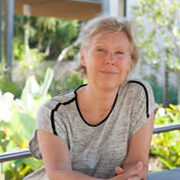Janet Browne’s interests range widely over the history of the life and earth sciences and natural history. She came to Harvard in 2006 and teaches a variety of courses on evolutionary history and the history of natural history. After a first degree in zoology she studied for a PhD in the history of science at Imperial College London, published as The Secular Ark: Studies in the History of Biogeography (1983). She has spent many years studying the context of Charles Darwin’s work, first as associate editor of the early volumes of The Correspondence of Charles Darwin, and then in a biography of Darwin that integrated his science with his life and times. A leading intention of the book was to explore the ways in which scientific knowledge was created, distributed and accepted, moving from private to public, as reflected in the two-volume structure of the work. The biography was received generously both in the UK and USA, and awarded several prizes, including the James Tait Black award for non-fiction in 2004, the W. H. Heinemann Prize from the Royal Literary Society, and the Pfizer Prize from the History of Science Society. She is currently exploring the history of Darwin’s impact on popular culture from the time of his death to today. She was based for many years at the Wellcome Trust Centre for the History of Medicine at University College London where she taught in the MA, MSc and undergraduate programs in the history of science, biology, and medicine. She has been president of both the British Society for the History of Science and the History of Science Society—curiously, not the first person to do so, but the first woman. She has an Honorary degree from her alma mater, Trinity College Dublin, 2009.
The Salata Institute
The Salata Institute supports interdisciplinary research that leads to real-world action, including high-risk/high-reward projects by researchers already working in the climate area and new endeavors that make it easier for Harvard scholars, who have not worked on climate problems, to do so. Faculty interested in the Climate Research Clusters program should note an upcoming deadline for concepts on April 1, 2024.








